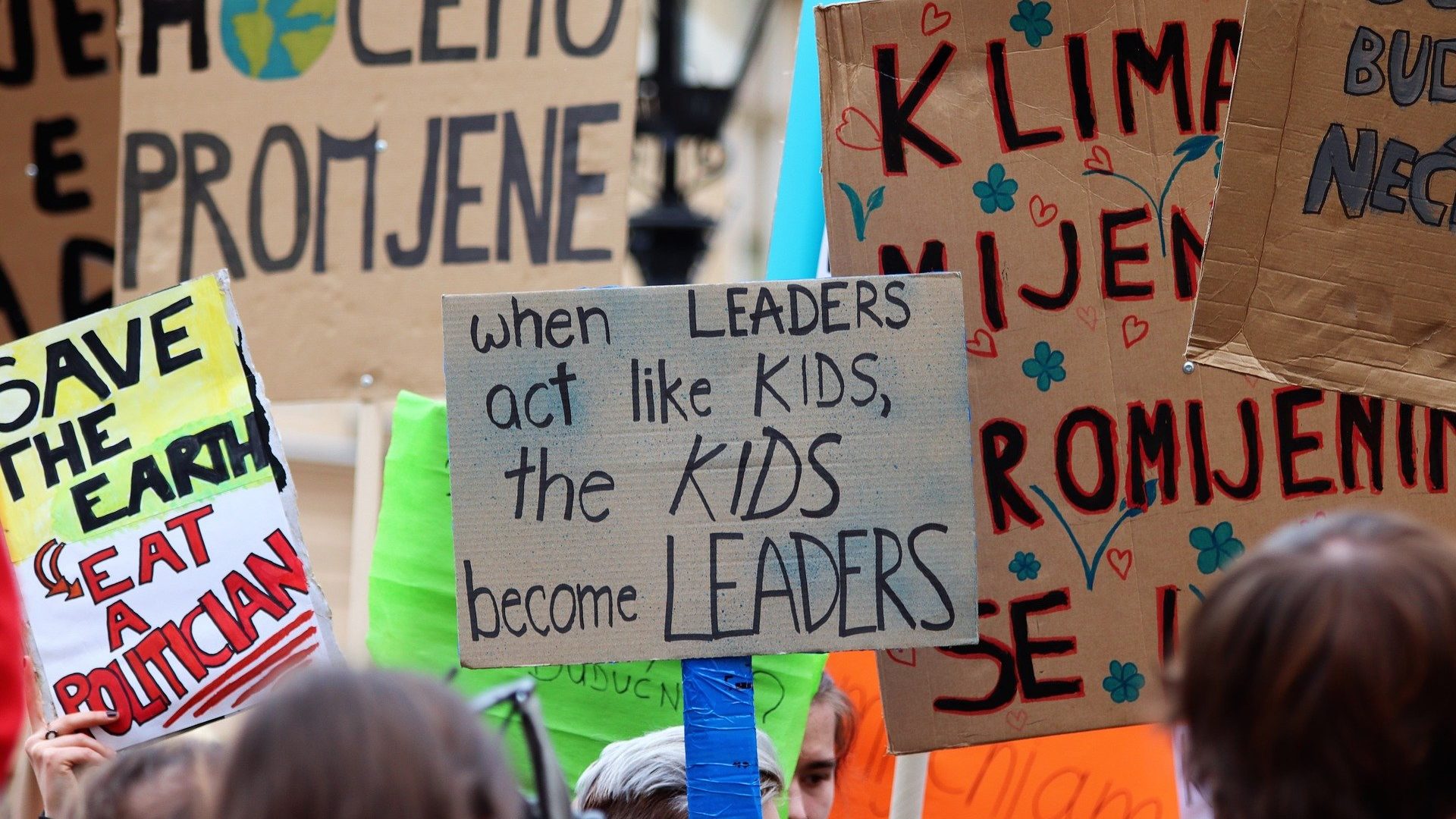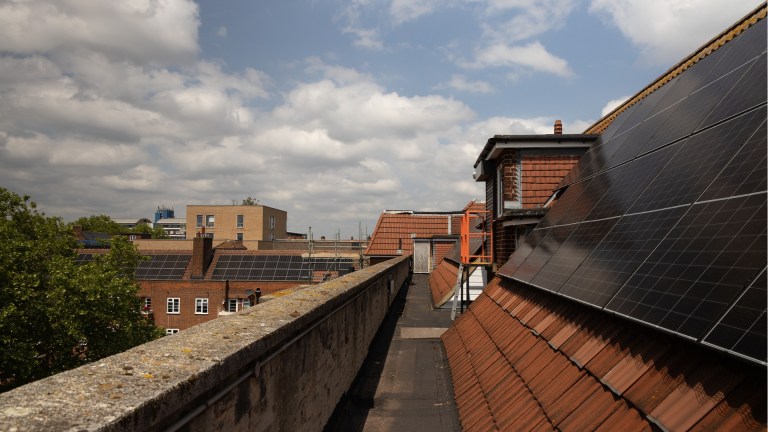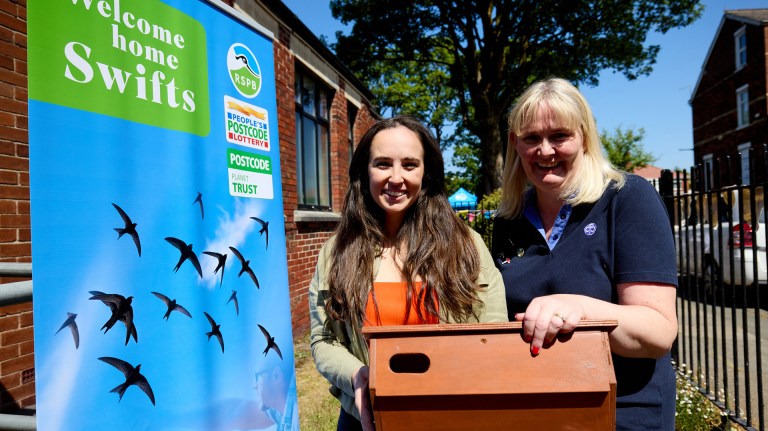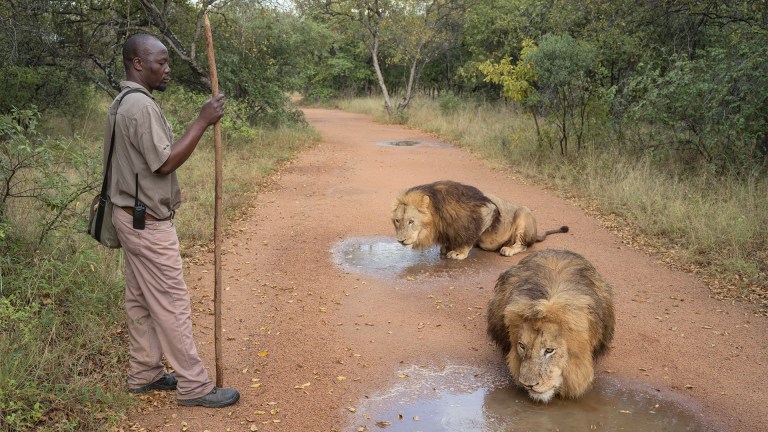“Secure net zero by mid-century and keep 1.5 degrees within reach”
As the hosts of COP26, the UK government has stated four key aims for the conference.
The first aim is the headline and perhaps most important one: to “secure” net zero emissions globally by 2050 in order to keep global warming within the 1.5C agreed upon at the 2015 COP in Paris.
Some countries have gone even further than 2050, pledging to reach net zero by 2030.
Even with 1.5C of warming, the planet will experience changes including more extreme weather, fires and drought.
Yet scientists agree that keeping warming within this limit is our best chance of preventing total climate breakdown.
“Net zero” refers to a situation in which the amount of greenhouse gases being emitted are equal to the amount of greenhouse gases being absorbed by natural or man-made carbon stores.
Advertising helps fund Big Issue’s mission to end poverty
Current commitments on reducing greenhouse gas emissions are insufficient to reach the target of 1.5C.
Instead, scientists say we are heading for a catastrophic 2.7C of warming – making the 1.5C target a crucial agenda item at this year’s conference.
One of the ways COP26 hopes to “secure” this target is through emissions reduction targets known as Nationally Determined Contributions (NDCs).
At the 2015 COP in Paris, all countries agreed to update their NDC every five years as part of the historic Paris Agreement which was brokered at the conference.
There are 191 countries signed up to the Paris Agreement. As of October 12 when the UN last updated its NDC information, 140 of these had submitted a new or updated version of their NDC.
The UK government has said it is “calling on all countries to update their NDCs so that they are in line with holding temperature rise to 1.5 degrees”, but has not made it clear what further steps they might take to push for this at COP26.
Advertising helps fund Big Issue’s mission to end poverty
Alongside encouraging countries to publish NDCs, the government has said four other actions will be essential for keeping warming within the 1.5C target:
- Accelerating the phase-out of coal
- Curtailing deforestation
- Speeding up the switch to electric vehicles
- Encouraging investment in renewables.
These issues don’t have associated goals or targets, but it’s likely that the UK will use COP26 to push for other countries to make pledges or agreements to achieve better outcomes on these points.
Actions might include encouraging leaders to sign up to initiatives like the “powering past coal alliance” or endorse the “leader’s pledge for nature”.
“Adapt to protect communities and natural habitats”
Thanks to historical build-up of greenhouse gas emissions in the atmosphere, much warming is now locked in.
As such, the global community will have to find ways to live on a changing planet, making adaptation the second goal of COP26.
The UK government said the conference aims to “enable and encourage” those worst affected by climate change to:
Advertising helps fund Big Issue’s mission to end poverty
- Protect and restore ecosystems
- Build defences, warning systems and resilient infrastructure and agriculture to avoid loss of homes, livelihoods and even lives
Part of this goal includes an aim to “accelerate action on protecting and restoring forests and other critical ecosystems, and help the world move towards sustainable agriculture and land use” at COP26.
This goal doesn’t have any concrete targets associated with it, so far as the government has indicated.
The UK’s COP26 “goals” page simply says that the government aims to “encourage” nature-based solutions and “collaborate” with other countries on agricultural issues at COP26.
“Mobilise finance”
The third goal of COP26 is to “mobilise finance”. The government has indicated that doing so will be essential in order to meet its first two goals.
It has said that developed countries “must deliver” on a promise to provide $100 billion every year in climate finance to support developing countries, who suffer from the worst impacts of climate change.
Just ahead of the conference, the UK government and partners from other developed countries set out a new financing plan to show “how and when” the goal will be met by developed countries.
Advertising helps fund Big Issue’s mission to end poverty
This was met with some disappointment by developing countries, as the target was originally set for 2020, but has now been pushed to 2023.
The UK has doubled its international climate finance commitment to help developing nations with £11.6 billion over the next five years up to 2025/2026.
At COP26, the government will be encouraging “as many countries as possible to follow our lead and increase their commitments through to 2025.”
It has also published documents outlining its COP26 aims and priorities for transforming both public and private finance to meet the $100bn goal.
“Work together to deliver”
The final aim of COP26 is somewhat vague, promising to “work together to deliver” on climate goals by:
- Finalising the “Paris Rulebook”
- Accelerating action to tackle climate change “through collaboration between governments, businesses and civil society.”
The first part of this goal is relatively clear. The “Paris Rulebook” refers to the rules which make the landmark Paris Agreement operational, and COP26 will see leaders attempt to finalise these.
These discussions will focus on:
Advertising helps fund Big Issue’s mission to end poverty
- Finding a solution on carbon markets by “creating a robust system of carbon credits that supports the move to net zero.”
- Resolving the issues of transparency by “putting in place a universal system that encourages all countries to keep to their commitments.”
- Brokering an agreement that “drives ambition from governments over the coming years to keep 1.5 degrees alive.”
The second part of the goal is far more vague, promising “collaboration” with others at COP26.
The UK government has said it aims to “work with countries and partners including the UN High Level Champions on Climate Action” on key climate change goals at COP26.
While you’re here…
The Big Issue has co-launched a new fund that invests ONLY in companies working to solve the climate crisis and help to create a cleaner, more sustainable world. The focus is on what can be done NOW for future generations.
In partnership with Aberdeen Standard Investments, the Multi-Asset Climate Solutions (MACS) Fund actively scours the globe for companies that get at least half of their revenue from climate change solutions and other key environmental challenges. Currently, less than five per cent of the world’s companies fit the bill.
From renewable energy and green buildings to electric vehicles and remote working technologies, the fund invests in companies that are enabling the transition to a low carbon economy.
Advertising helps fund Big Issue’s mission to end poverty
A Climate Advisory Group that includes Nigel Kershaw, Chair of The Big Issue Group, as well as respected environmental, policy and finance experts and climate activists has been established to make sure the fund does what it is supposed to do. It is proof that the fund is not a tokenistic step.
20 per cent of the net revenue goes back into The Big Issue to support its social mission.
To find out more about the MACS Fund go to bigexchange.com or abrdn.com.
Learn more about further Big Issue work for Future Generations, through John Bird’s Future Generations Bill currently working through Westminster, see bigissue.com/today-for-tomorrow










